“The Music Master,” was among the first Broadway shows that offered a complete set of six postcards as a theatre souvenir. The set was published by H. J. Hanf Company of New York. The images are black-and-white photographs, and someone has written the date February 27, 1906, on each card. It could be the date the original owner bought the cards or even the date he saw the performance. The play was a notable effort by Charles Klein that premiered on September 26, 1904.
Charles Klein was an English-born playwright and actor who emigrated to America in 1883. After moving to New York City, he began his own acting career but struggled until he accepted a role in the play, Little Lord Fauntleroy, that was based on the children’s novel. He began writing by 1890, but worked exclusively for the producer Charles Frohman, the same man who produced the forever popular Peter Pan and the libretti of John Philip Sousa’s several operettas. Frohman was only 48 when he died on May 7, 1915 – one of the 1,197 passengers and crew who died while on board the RMS Lusitania.
Klein penned a great many dramatic plays, many of which were produced in the first 15 years of the 20th century. He had an uncanny knack of creating intricate and complex characters – David, the Music Master was only one. He was keen on exploring themes of passion and ambition within the backdrop of the music world. And, he showed no concern when he delved into the life of a talented musician he knew well, to write dialog full of personal struggle and triumph which accompany the pursuit of artistic excellence.
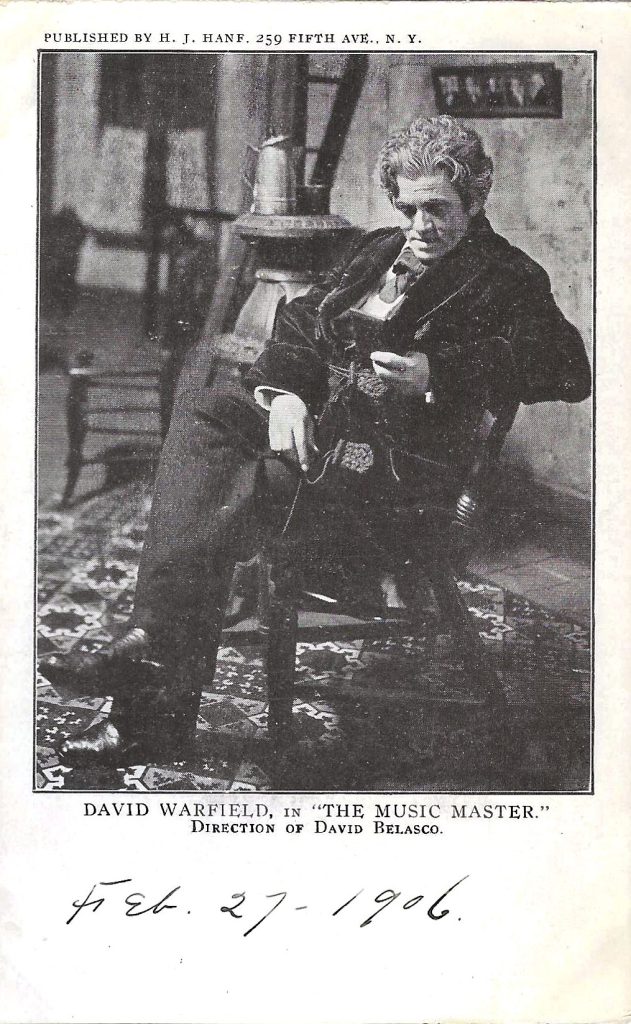
In the Music Master, the title character is a gifted composer named David who personifies the artist whose life is dominated by music and has a strong desire to create. The character David is deeply layered with genius, yet he is emotionally weak. He grapples with his personal relationships, but his passion for music frequently strains his rapport with those around him, particularly with his romantic interest in the charming Margaret.
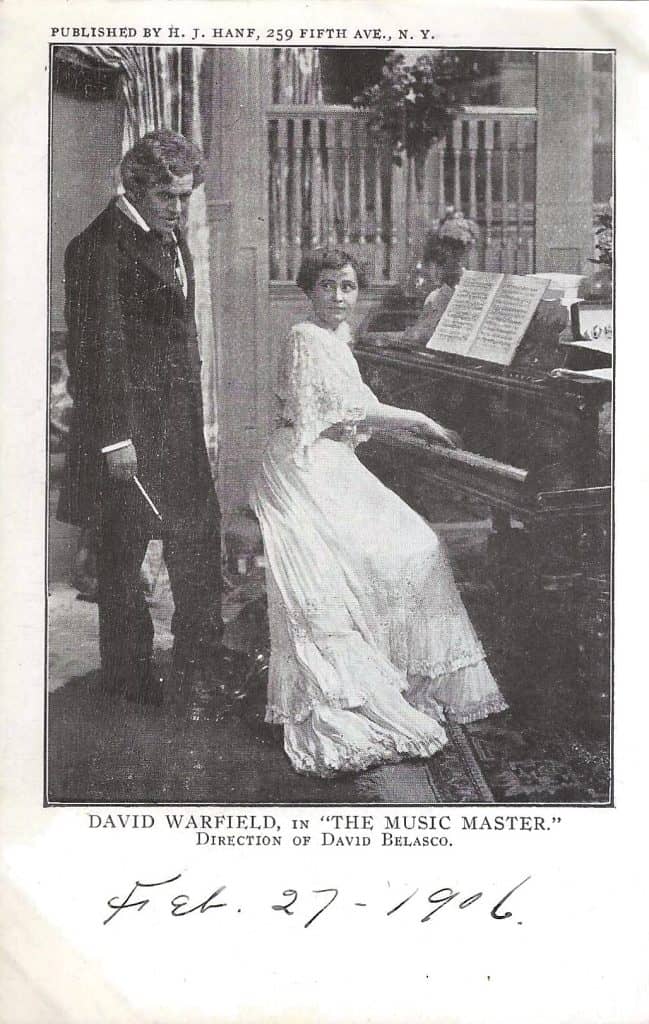
One of the play’s central themes is the gap between personal sacrifice and artistic success. David is portrayed as a man of great talent, yet his focus on his music leads to isolation from his loved ones. Margaret is a faithful support for David, who has the idea that love can feed the creative spirit. Klein’s portrayal of their relationship is a word-picture of the balance between self and others.
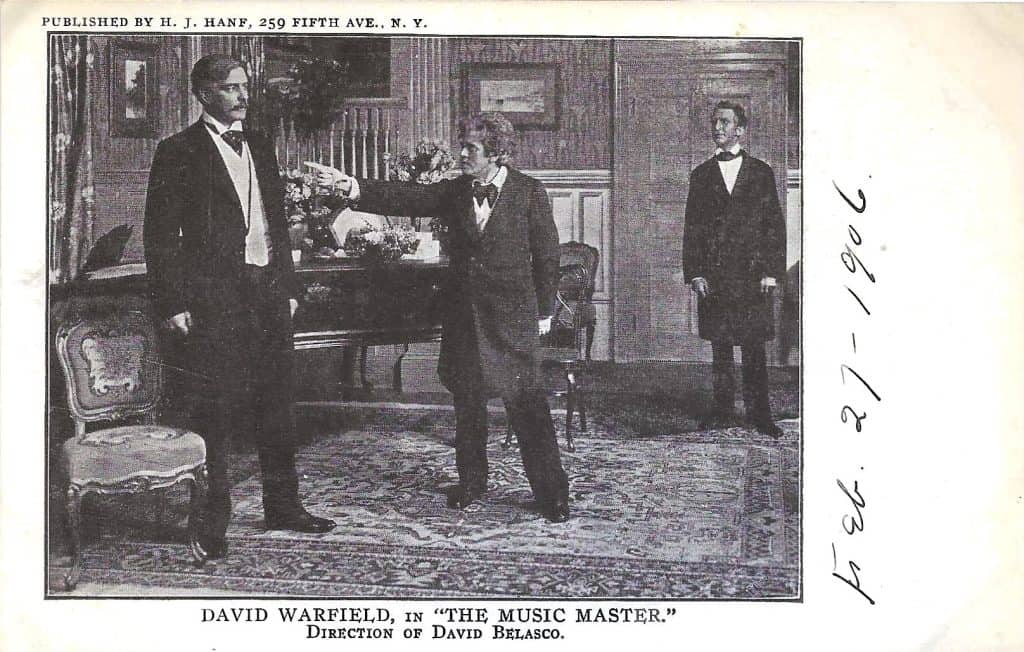
The dramatic tension in “The Music Master” illustrates the societal norms and expectations prevalent during the early 20th century. The pressures to conform to commercially successful molds often destroyed worthy theater, literature, and art. Works the world never had the privilege of seeing, hearing, or reading.
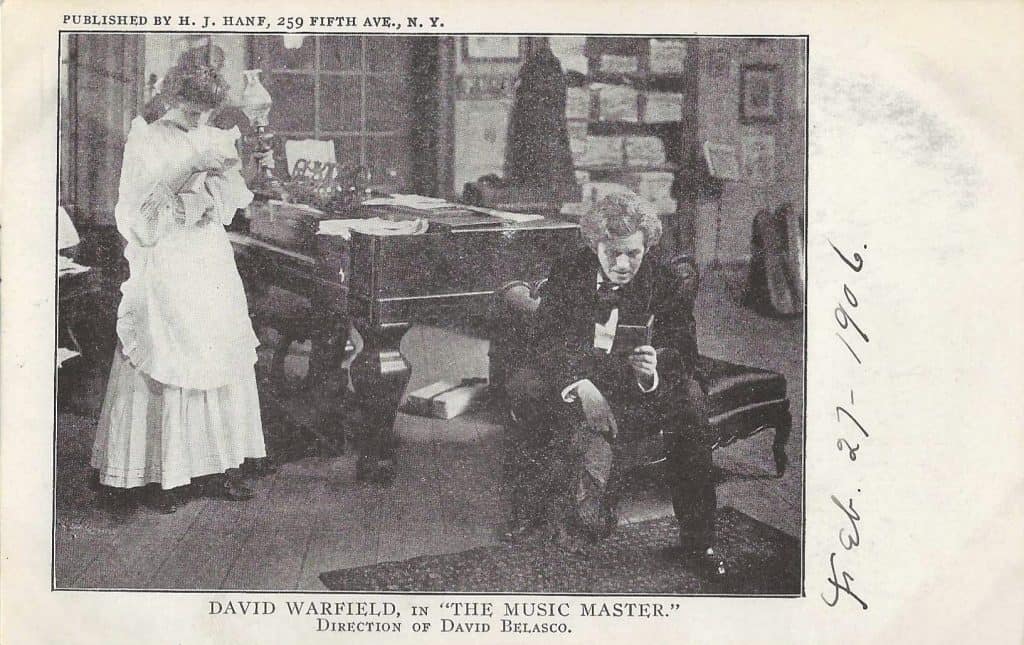
Other ideals of artistic integrity that many musicians, including David, strive to uphold are illustrated as Klein portrays the music industry as both a source of inspiration and an abusive community that stifles creativity. This was especially true for noted composers, the likes of Franck, Dukas, Debussy, and Saint-Seans in France, Prokofiev and Shostakovich in Russia, and Stravinsky and Bernstein here in America. All of whom flourished between the 1890s and the 1950s and often clashed with state sponsors and critics.
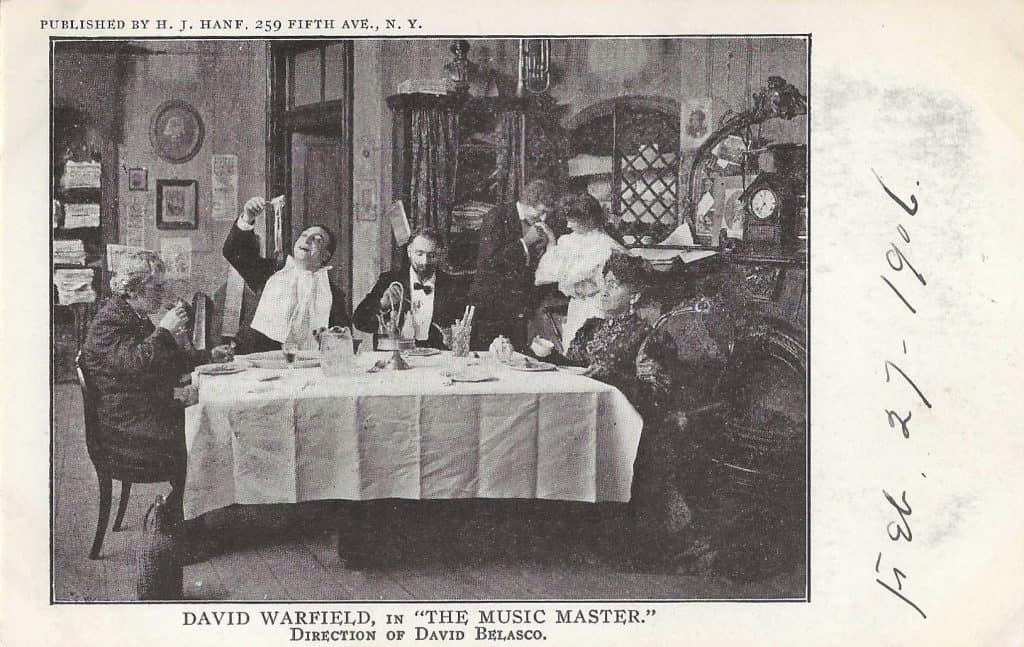
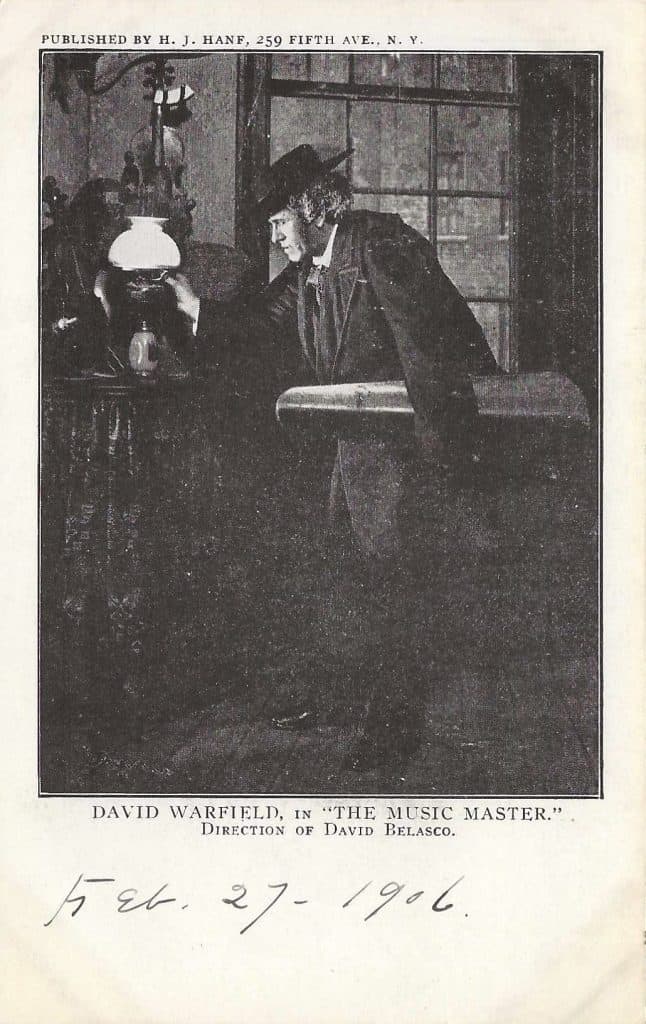
As the play progresses, David’s journey takes him through a series of personal and professional trials that reignite his old fears but also develop new desires. At the end, Klein reveals not only his struggle for artistic realness but also those of his characters, especially the impact of their choices in life that were made without wisdom. Klein’s writing captures the essence of the artist. He showcases the emotional turmoil nearly every creative soul lives with.
The world is much different today, therefore Klein’s play is much less relevant, but is makes a good read. Your effort will demand that you reflect on the sometimes painful yet purposeful actions of those who have creative spirits.
***
The last card in the series is especially poignant; David rises from his desk with a completed manuscript in hand, he turns off the light. The stage goes black.
David Belasco, identified on the cards as the director of The Music Master, also adapted the short story “Madame Butterfly” for the stage and launched the careers of such luminaries as Mary Pickford and Barbara Stanwyck.
Great article! I have the attached two cards from this play, one unmailed Hanf card dated March 9, 1905 and the other Rotograph RPPC card postmarked August 17, 1907.
I also have this Rotograph RPPC.